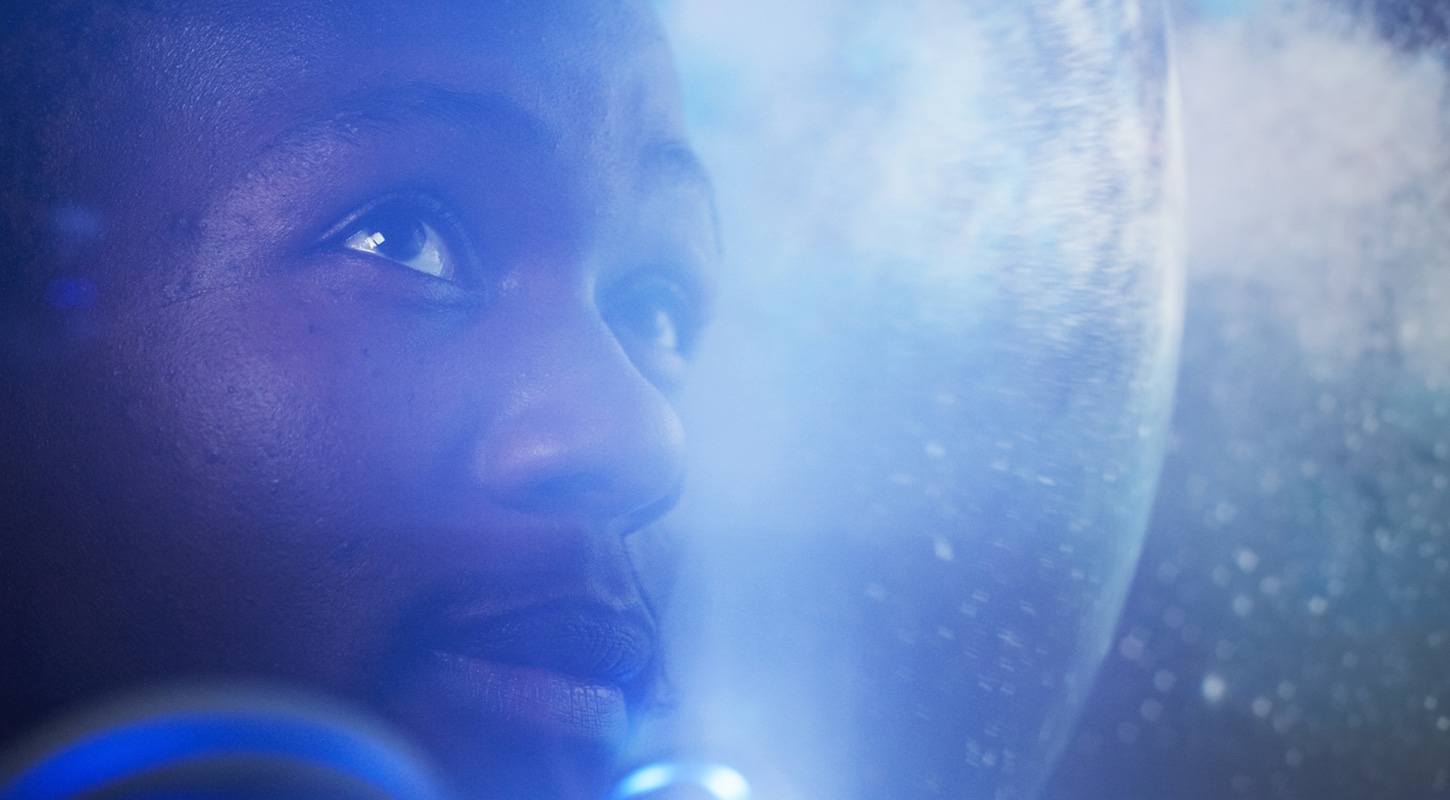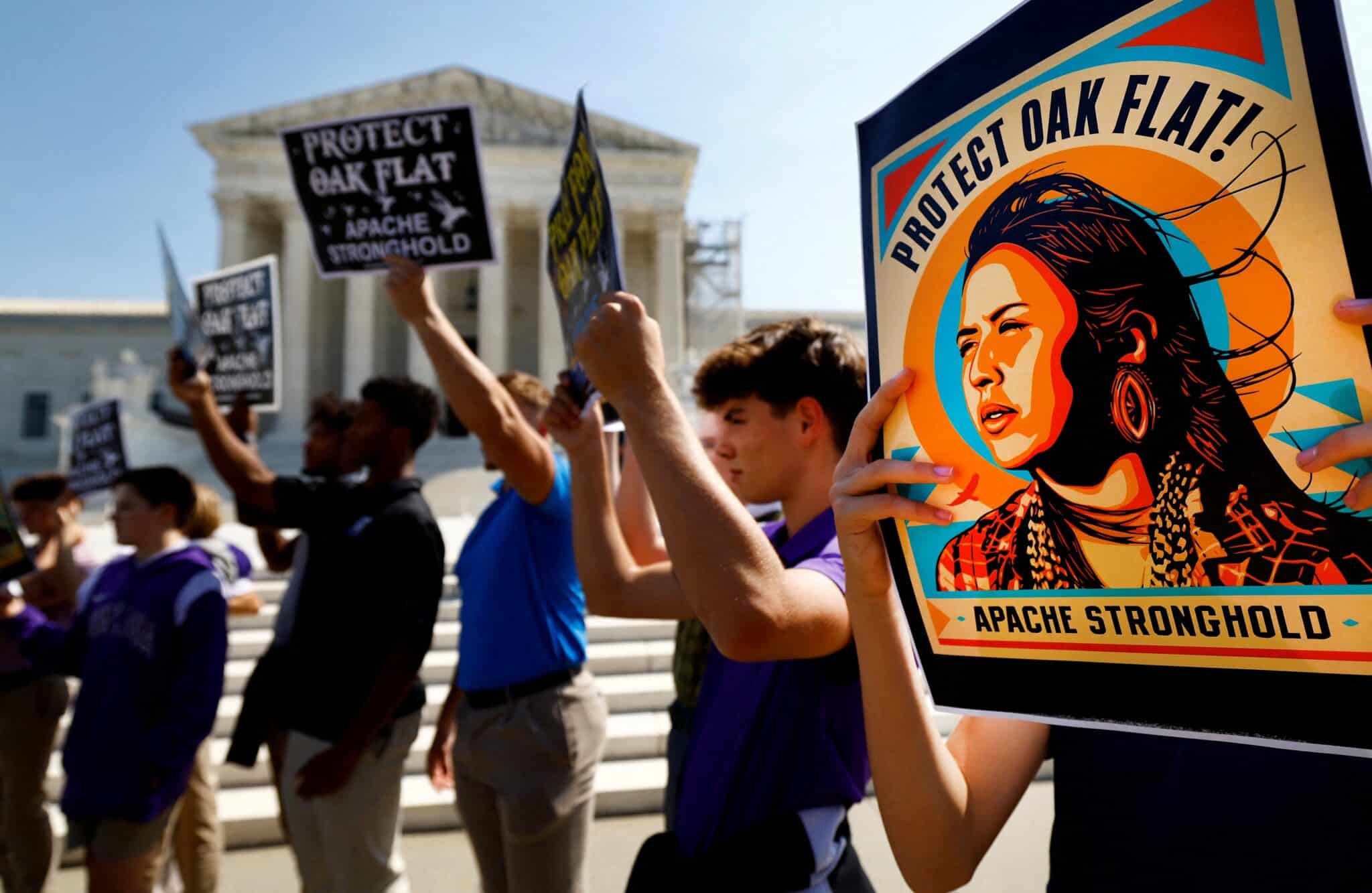(OSV News) — The naming of a Japanese atomic bomb survivors group as this year’s Nobel Peace Prize recipient is “fitting … during this time of heightened geopolitical tension,” said Archbishop John C. Wester of Santa Fe, New Mexico, who has traveled to Japan on several peace pilgrimages and also released a 2022 pastoral letter on nuclear disarmament.
On Oct. 11, the Norwegian Nobel Committee announced it had selected the Japanese organization Nihon Hidankyo for the award, which was established (along with several other prizes) by Swedish scientist and industrialist Alfred Nobel in his will to honor “the best work for fraternity between nations, the abolition or reduction of standing armies and for the holding and promotion of peace congresses.”
Since its first conferral in 1901, some five years after Nobel’s death, the Nobel Peace Prize has been awarded 105 times to 142 laureates, representing 111 individuals and 31 organizations.
Nihon Hidankyo, founded in 1956, is the largest organization of Japanese hibakusha, the survivors of the atomic bombings of the cities of Hiroshima and Nagasaki. The historic attacks were launched by the U.S. on Aug. 6 and 9, 1945, in an effort to force the unconditional surrender of Japan and hasten the end of the Second World War. An estimated 110,000 to 210,000 people were killed directly, although the true number of casualties is “probably fundamentally unknowable,” according to nuclear weapons historian Alex Wellerstein.
Following the bombings, the hibakusha (“bomb-affected people” in Japanese) suffered from the varied effects of radiation sickness, as well as the loss of their loved ones and even discrimination within Japanese society, as their injuries were mistakenly perceived as signs of infectious disease.
“The survivors of the Hiroshima and Nagasaki bombings continue to put a human face on the tragedy of war and, specifically, the tragedy and immorality of nuclear weapons, which have increased in number and lethal force as we witness a second nuclear arms race far more dangerous than the first,” Archbishop Wester said in an Oct. 14 statement.
According to the Federation of American Scientists, “the world’s combined inventory of nuclear warheads remains at a very high level,” with nine countries possessing “roughly 12,121 warheads as of early 2024.”
Together, the U.S. and Russia account for “approximately 88 percent of the world’s total inventory of nuclear weapons, and 84 percent of the stockpiled warheads available for use by the military,” said the federation in a March 29 update posted to its website.
While the global inventory of nuclear weapons is slowly declining, “the number of warheads in global military stockpiles … is increasing once again,” with “China, India, North Korea, Pakistan and the United Kingdom, as well as possibly Russia … all thought to be increasing their stockpiles,” the federation said.
Since its February 2022 full-scale invasion of Ukraine, Russia has repeatedly threatened to use nuclear weapons in Ukraine as well as in Europe and North America. On Sept. 25, Russian leader Vladimir Putin announced a change in Russia’s nuclear doctrine, lowering the threshold for the use of such weapons.
Archbishop Wester — who in January 2022 released the pastoral letter “Living in the Light of Christ’s Peace: A Conversation Toward Nuclear Disarmament” — said in his Oct. 14 statement that the “well-deserved recognition” of Nihon Hidankyo by the Nobel committee was a wake-up call to humanity.
Others welcoming the news of the Nobel prize for Nihon Hidankyo included the Partnership for a World Without Nuclear Weapons, a Catholic coalition which includes the Archdiocese of Seattle.
The organization aims to build “a voluntary international network to protect all life and the environment from all forms of nuclear harm,” it said in a news release. The group began in 2023 on the 78th anniversary of the atomic bombing with a signed agreement between the bishops of the Santa Fe and Seattle archdioceses, the Diocese of Hiroshima and the Archdiocese of Nagasaki to work toward nuclear disarmament.
“As a group dedicated to disarmament, our Partnership for a World Without Nuclear Weapons draws inspiration and energy from their work,” Seattle Archbishop Paul D. Etienne said in an Oct. 16 statement. “We commend the hibakusha for their dedication to campaigning for peace and nuclear disarmament.”
Two Japanese prelates also heralded the awarding of the Nobel prize going to Nihon Hidankyo.
“As we approach the 80th anniversary of the atomic bombings next year, this is wonderful news of hope for a world without nuclear weapons,” said Archbishop Peter Michiaki Nakamura of Nagasaki. “The award is the fruit of the efforts of atomic bomb survivors who have dedicated their lives to continue to educate the world about the reality of the atomic bombings.”
Bishop Alexis Mitsuru Shirahama of Hiroshima added, “We thank them for their commitment to ensuring that the same inhuman tragedy will never be repeated.”
In the summer of 2023, Archbishop Etienne and Archbishop Wester made a “Pilgrimage of Peace” to Hiroshima and Nagasaki. On Aug. 9, the 78th anniversary of the atomic bombing of Nagasaki, the two U.S. prelates joined Archbishop Nakamura, Bishop Shirahama and retired Archbishop Joseph Mitsuaki Takami of Nagasaki in signing a formal pledge to concretely work toward “a world without nuclear weapons.”
In his Oct. 14 statement on the Nobel Peace Prize, Archbishop Wester said, “I pray this well-deserved recognition by the Nobel Foundation will amplify the voices of the hibakusha, whose numbers are diminishing as we are about to mark the 80th anniversary of the Japan atomic bombings.”
“I hope this Peace Prize awarded to Nihon Hidankyo will get the attention of the nuclear states who have yet to sign the (United Nations) Treaty for the Prohibition of Nuclear Weapons,” he added. “Now, that would be a real prize for the Hibakusha and for all of us!”
By Gina Christian | OSV News







News & Commentary
Wester: Nobel Peace Prize for Japanese atomic bomb survivors ‘fitting’ amid global tensions
(OSV News) — The naming of a Japanese atomic bomb survivors group as this year’s Nobel Peace Prize recipient is “fitting … during this time of heightened geopolitical tension,” said Archbishop John C. Wester of Santa Fe, New Mexico, who has traveled to Japan on several peace pilgrimages and also released a 2022 pastoral letter on nuclear disarmament.
On Oct. 11, the Norwegian Nobel Committee announced it had selected the Japanese organization Nihon Hidankyo for the award, which was established (along with several other prizes) by Swedish scientist and industrialist Alfred Nobel in his will to honor “the best work for fraternity between nations, the abolition or reduction of standing armies and for the holding and promotion of peace congresses.”
Since its first conferral in 1901, some five years after Nobel’s death, the Nobel Peace Prize has been awarded 105 times to 142 laureates, representing 111 individuals and 31 organizations.
Nihon Hidankyo, founded in 1956, is the largest organization of Japanese hibakusha, the survivors of the atomic bombings of the cities of Hiroshima and Nagasaki. The historic attacks were launched by the U.S. on Aug. 6 and 9, 1945, in an effort to force the unconditional surrender of Japan and hasten the end of the Second World War. An estimated 110,000 to 210,000 people were killed directly, although the true number of casualties is “probably fundamentally unknowable,” according to nuclear weapons historian Alex Wellerstein.
Following the bombings, the hibakusha (“bomb-affected people” in Japanese) suffered from the varied effects of radiation sickness, as well as the loss of their loved ones and even discrimination within Japanese society, as their injuries were mistakenly perceived as signs of infectious disease.
“The survivors of the Hiroshima and Nagasaki bombings continue to put a human face on the tragedy of war and, specifically, the tragedy and immorality of nuclear weapons, which have increased in number and lethal force as we witness a second nuclear arms race far more dangerous than the first,” Archbishop Wester said in an Oct. 14 statement.
According to the Federation of American Scientists, “the world’s combined inventory of nuclear warheads remains at a very high level,” with nine countries possessing “roughly 12,121 warheads as of early 2024.”
Together, the U.S. and Russia account for “approximately 88 percent of the world’s total inventory of nuclear weapons, and 84 percent of the stockpiled warheads available for use by the military,” said the federation in a March 29 update posted to its website.
While the global inventory of nuclear weapons is slowly declining, “the number of warheads in global military stockpiles … is increasing once again,” with “China, India, North Korea, Pakistan and the United Kingdom, as well as possibly Russia … all thought to be increasing their stockpiles,” the federation said.
Since its February 2022 full-scale invasion of Ukraine, Russia has repeatedly threatened to use nuclear weapons in Ukraine as well as in Europe and North America. On Sept. 25, Russian leader Vladimir Putin announced a change in Russia’s nuclear doctrine, lowering the threshold for the use of such weapons.
Archbishop Wester — who in January 2022 released the pastoral letter “Living in the Light of Christ’s Peace: A Conversation Toward Nuclear Disarmament” — said in his Oct. 14 statement that the “well-deserved recognition” of Nihon Hidankyo by the Nobel committee was a wake-up call to humanity.
Others welcoming the news of the Nobel prize for Nihon Hidankyo included the Partnership for a World Without Nuclear Weapons, a Catholic coalition which includes the Archdiocese of Seattle.
The organization aims to build “a voluntary international network to protect all life and the environment from all forms of nuclear harm,” it said in a news release. The group began in 2023 on the 78th anniversary of the atomic bombing with a signed agreement between the bishops of the Santa Fe and Seattle archdioceses, the Diocese of Hiroshima and the Archdiocese of Nagasaki to work toward nuclear disarmament.
“As a group dedicated to disarmament, our Partnership for a World Without Nuclear Weapons draws inspiration and energy from their work,” Seattle Archbishop Paul D. Etienne said in an Oct. 16 statement. “We commend the hibakusha for their dedication to campaigning for peace and nuclear disarmament.”
Two Japanese prelates also heralded the awarding of the Nobel prize going to Nihon Hidankyo.
“As we approach the 80th anniversary of the atomic bombings next year, this is wonderful news of hope for a world without nuclear weapons,” said Archbishop Peter Michiaki Nakamura of Nagasaki. “The award is the fruit of the efforts of atomic bomb survivors who have dedicated their lives to continue to educate the world about the reality of the atomic bombings.”
Bishop Alexis Mitsuru Shirahama of Hiroshima added, “We thank them for their commitment to ensuring that the same inhuman tragedy will never be repeated.”
In the summer of 2023, Archbishop Etienne and Archbishop Wester made a “Pilgrimage of Peace” to Hiroshima and Nagasaki. On Aug. 9, the 78th anniversary of the atomic bombing of Nagasaki, the two U.S. prelates joined Archbishop Nakamura, Bishop Shirahama and retired Archbishop Joseph Mitsuaki Takami of Nagasaki in signing a formal pledge to concretely work toward “a world without nuclear weapons.”
In his Oct. 14 statement on the Nobel Peace Prize, Archbishop Wester said, “I pray this well-deserved recognition by the Nobel Foundation will amplify the voices of the hibakusha, whose numbers are diminishing as we are about to mark the 80th anniversary of the Japan atomic bombings.”
“I hope this Peace Prize awarded to Nihon Hidankyo will get the attention of the nuclear states who have yet to sign the (United Nations) Treaty for the Prohibition of Nuclear Weapons,” he added. “Now, that would be a real prize for the Hibakusha and for all of us!”
By Gina Christian | OSV News